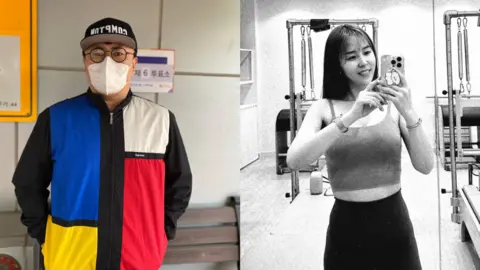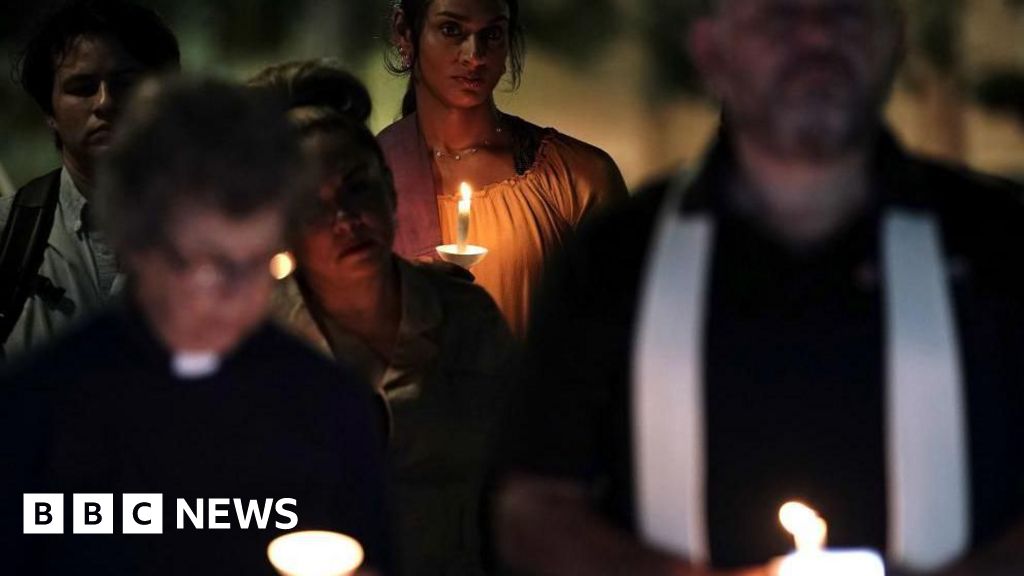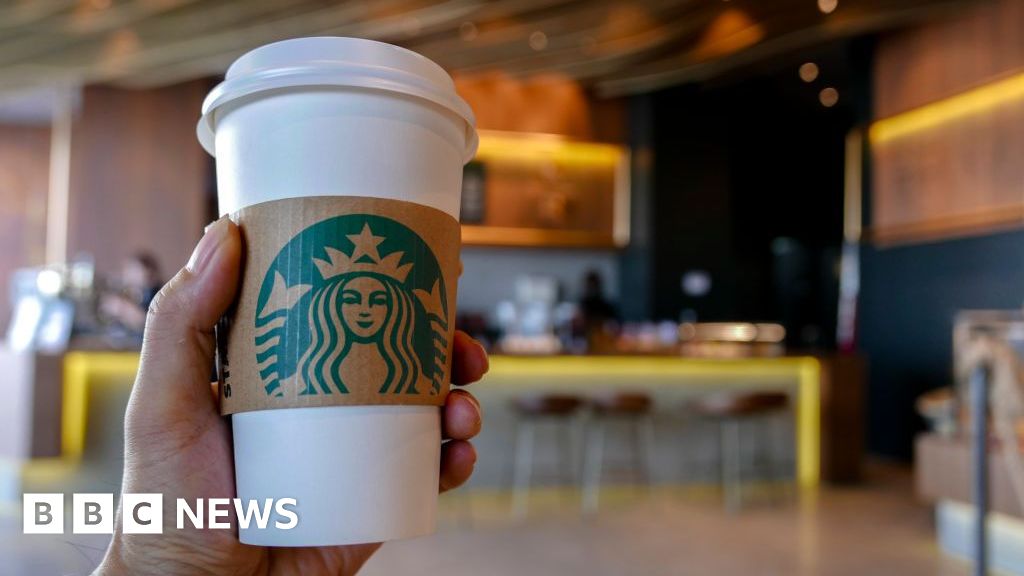BBC Korean Service
 Getty Images
Getty ImagesWalk into any Starbucks in South Korea right now, and there are some names you definitely won’t be hearing.
Six to be exact – and they happen to be the names of the candidates running in the upcoming presidential race.
That’s because Starbucks has temporarily blocked customers who are ordering drinks from using these names, which would be called out by baristas.
The company said it needed to “maintain political neutrality during election season”, adding that this would be lifted after the election on 3 June.
South Korean businesses and celebrities usually strive to be seen as neutral. But it has become more crucial in recent months, as political turmoil triggered by former president Yoon Suk Yeol left the country more divided than ever.
Now, as South Korea gears up to pick its new president following Yoon’s impeachment, even the most mundane things can become politicised – a lesson Starbucks has learnt the hard way.
In recent months, it has seen an increasing number of customers ordering drinks through their app and keying in phrases such as “arrest Yoon Suk Yeol” or “[opposition leader] Lee Jae-myung is a spy” as their nicknames.
Starbucks baristas had little choice but to yell out these names once the drinks were ready for collection.
“Our goal is to make sure every customer has a great experience in our coffeehouses,” Starbucks said in a statement about its new move to ban the six presidential candidates’ names.
“To help with that, we sometimes block certain phrases that could be misunderstood by our employees or customers — like names of political candidates with messages of support or opposition during election season to maintain neutrality.”
But this marks the first time it has banned the names of all the candidates running in an election. Besides Lee, the other names are Kim Moon-soo, Lee Jun-seok, Kwon Young-kook, Hwang Kyo-ahn and Song Jin-ho.
Some think the coffee giant is taking things a bit too far.
“I think people are being too sensitive. What if your real name is the same as a candidate’s?” said 33-year-old Jang Hye-mi.
Ji Seok-bin, a 27-year-old who is a regular at Starbucks, said he thought the rule was “too trivial”, though he said he understood the logic behind it given the country’s heightened political tensions.
“After [Yoon’s impeachment] I don’t really talk about politics anymore. It feels like the ideological divide has grown so much that conversations often turn into arguments.”

Selfies and searches
Starbucks is not alone. The country’s biggest search engine, Naver, has disabled autocomplete and related search suggestions for candidates, as it usually does during election season.
A search on Google for Lee, who is widely tipped to win the election, yields phrases like “Lee Jae-myung trial” – a reference to the fact that he is currently embroiled in several criminal trials.
A search for the country’s conservative presidential candidate Kim Moon-soo brings up a related suggestion for “conversion”, as he is widely seen to have “converted” from being a fervent labour activist to a conservative politician.
Naver said it decided to do this to “provide more accurate and fair information during the election campaign”.
Celebrities and public figures are also being extra careful, as they are held to high standards of political impartiality. Even the clothes they wear during election time would be highly scrutinised.
Wearing colours like blue and red – which represent the country’s liberal Democratic Party (DP) and conservative People’s Power Party (PPP) respectively – has in the past been enough to trigger online backlash.
Sometimes, even a baseball cap or necktie alone is enough to spark accusations of partisan support.
During the last presidential election in 2022, Kim Hee-chul of K-pop group Super Junior was accused of being a PPP supporter when he was spotted wearing red slippers and a pink mask.
Last year, Shinji, lead vocalist of the popular trio Koyote, posted a black and white workout photo on Instagram a day before the general election, with the caption that she “made the photo black and white… [after] seeing the colour of my sweatpants.”
“Funny and sad at the same time,” she added.
Some celebrities go even further, deliberately wearing a mix of red and blue.
 Defconn/Shinji/Instagram
Defconn/Shinji/InstagramOne makeup artist with over a decade of experience working with K-pop stars and actors told the BBC that during elections, styling teams steer clear of politically symbolic colours.
“We usually stick to neutral tones like black, white, or grey,” said the make-up artist, who declined to be named.
Celebrities even have to be careful when striking a pose, she added.
Flashing the peace sign for a photo? That could be read as the number two – and thus an endorsement of a political candidate. In South Korea, election candidates are each assigned a number.
Dr Cho Jin-man, of Duksung Women’s University, says it is “important to be able to talk about different things without crossing the line, and to be able to recognise and understand differences”.
But with so much division in the country, he adds that many are choosing to “remain silent to remain politically neutral”.
Source link















